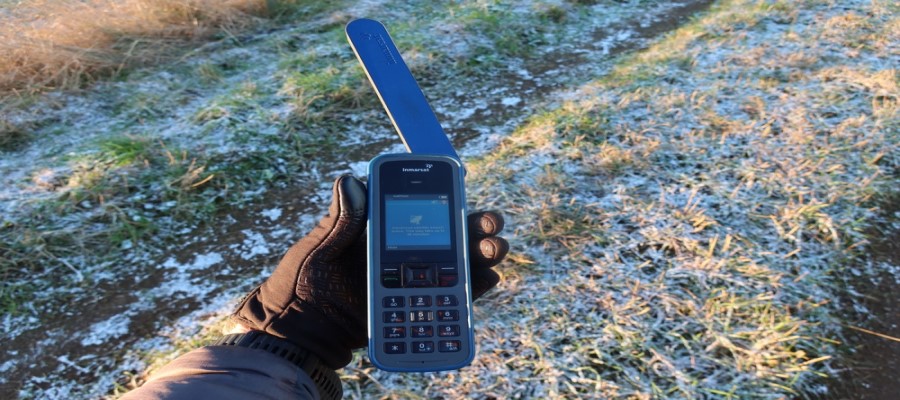Telecom
Telecom Subscribers Spend N335.94Bn on Calls, SMS, Data in May

Telecommunications consumers in the country spent some N335.94 billion in May, according to findings by Business A.M.

In arriving at the figures, Business A.M, estimated that each active telephone line averagely spent N1, 747.26 ($4.50) during the month.
Similarly, total active telephone lines in the country increased to 192.27 million in May, rising by additional 1.46 million lines from April’s record of 190.81 million, according to the latest industry statistics obtained from the Nigerian Communications Commission (NCC).
As active subscriptions increased, so also did the Average Revenue per User (ARPU), which is a measure used primarily by consumer communications, digital media, and networking companies, as the total revenue divided by the number of subscribers.
The upward movement has been observed in two consecutive quarters as ARPU went up by 20 per cent to hit $4.25 in Q1, 2020 from $3.87 in Q4 of 2019; and sustained to settle at $4.50 in Q2, 2020.
This is in contrast to the conventional trend whereby rise in the number of active lines often distributes estimated revenue to total subscriptions and thus trigger contraction in ARPU.
Recall that industry observers had earlier projected increase in revenue for telecoms operators as lockdown and social distancing employed as preventive measures for COVID-19 have kept people at home and forced enterprises to divert operations and activities to the virtual space, resulting in more reliance on data and telephony in its entirety.
This has been supported by disclosure by Muahamed Rudman, chief executive officer of the Nigerian Internet Exchange Point (iXPN) who reported more than 10 per cent in internet traffic less than two weeks into lockdown in Nigeria.
As this development seems to ignite insinuations that operators are cashing in big on the development and that active telephone lines are rising, industry experts have been quick to call for a critical digestion of the figures.
Olusola Teniola, president, Association of Telecommunications Companies of Nigeria (ATCON), has cautioned that the figures must not be celebrated yet, hinting that the observed rise in revenue is claimed by just a few operators, leaving the majority of other telecoms players on the other side of the divide.
He noted that only the Mobile Network Operators (MNOs) consisting of MTN, Glo, Airtel and 9Mobile and just a few others have their operations immune to the pandemic.
He said there are many other ATCON members who provide enterprise solutions for companies that are now under locks, and thus losing money to the lull on a daily basis.
He said: “We have to note that obviously, the industry is not just made up of the MNOs alone, there are other players in the market that have had to demonstrate negative numbers
“Negative numbers in the sense that, during the lockdown, employees of enterprises and businesses have stayed at home naturally. So, there have been no services to these enterprises by our members. So we can say this contributed to the change in consumer behaviour in terms of internet usage.
“However, as these slightly uplifted the numbers, they do not compensate for the losses in voice and they do not compensate for the losses in the enterprise segment of the market,” Teniola explained.
This is further supported by data from the industry regulator, NCC, showing that of the current 192.27 million active lines, the MNOs or GSM operators have 190.48 million subscribers on their networks, representing 99.82 per cent market share.
Other players by technology are Voice over Internet Protocol (VoIP) players controlling 0.12 per cent market share; the fixed wireless and wired operators have 0.06 per cent while code division multiple access (CDMA) have completely lost relevance in the Nigerian telecoms market, with 0.0 per cent market share.
In the GSM segment of the market, MTN Nigeria is leading with 76.06 million active lines on its network, which translates to 39.61 per cent market share, followed by Globacom that has 52.06 million customers on its network to cover 27.12 per cent of the Nigerian market.
Similarly, Airtel Nigeria, which remains the closest competitor to Glo serves 51.5 million subscribers on its network, equivalent to 26.83 per cent share while Emerging Market Telecommunications Service (EMTS), operating as 9Mobile in the country, controls 6.37 per cent market share with its remaining 12.23 million subscriptions.
Meanwhile, Visafone, whose subscribers now run on MTN network but captured separately in the NCC data had 137,086 active subscriptions as at May, and this secured for it 0.07 per cent, the smallest market share.
Analysis of trends in telecoms market also shows a sustained uptick in the number of active lines which grew from 184.7 million in December 2019 to 186.02 million in January, 187.44 million in February and 189.28 million to seal the first quarter in March.
The figure moved up again in April by 0.81 one per cent as 1.53 million new subscriptions were recorded on the networks of operators, extending the growth in May by 0.77 per cent with 1.46 million new subscribers.
Similarly, teledensity which stood at 99.96 per cent in April inched up to surpass 100 marks at 100.72 per cent.
Telephone density or teledensity is the number of telephone connections for every hundred individuals living within an area and is calculated based on a population estimate of 190 million people in Nigeria.
The latest rise in teledensity, according to the ATCON president, Teniola, indicates that something is not right with network distribution patterns in Nigeria, noting that despite the rise in the figures, millions of Nigerians, particularly in rural areas still lack access to telecoms services.
He said: “If you look at the increase in subscriptions, you will see that existing customers are picking up other new lines in addition to the ones they have to ensure that they can enjoy many offers and partake in virtual meetings and so on since the COVID-19 lockdown.
“The teledensity is above 100 per cent and anything above 100 per cent suggests saturation of accounts, network coverage and usage. Basically, concentration of services is in the triangular cities of Lagos, Abuja and Port Harcourt. But we have to think about those who don’t have access to services at all.
“The narrative around the number suggests that there are a lot of people who have access and can afford cost of data but they are concentrated, particularly in those cities of the country where penetration of broadband is, predominantly Lagos which takes about 15 per cent of the country’s current 40 per cent broadband penetration by subscription, and not by individual,” he explained.
As he cited the issue of young Nigerians who cannot access education online because of lack of access and affordability, he said solving the problem will depend primarily on expanding the service to them.
“I think that what we need to do is to look at the Nigeria National Broadband Plan (2020-2025) and see those areas that we really need to plug in to get a diminutive unique subscriber number that reflects the GDP increase that we are expecting in the country,” Teniola concluded.
Telecom
FG Expands 3MTT Programme Across the Country

Dr Bosun Tijani, Nigeria’s minister of communications, innovation, and digital economy, has revealed that the federal government’s 3 Million Technical Talent (3MTT) programme has trained over 135,000 citizens as it moves from pilot to national level.

Tijani announced this in an update on the program’s success, stating that the beneficiaries were trained in three batches.
He also stated that the initiative’s community-based learning tools had provided over 300,000 extra learners with access to digital skills training across the country.
According to the minister, the program has also enabled the creation of about 15,000 job, entrepreneurship, and career development in Nigeria’s developing digital economy.
He further revealed that more than 1.8 million Nigerians are currently in the 3MTT pipeline, as the government works toward its target of equipping three million citizens with in-demand digital skills aligned with local and global labour market needs.
As the programme enters its scale-up phase, Tijani said the government’s focus will shift toward deepening impact rather than just expanding numbers.
Key priorities, he explained, include strengthening the 3MTT alumni community, widening access to economic opportunities and ensuring that skills acquired through the programme translate into measurable outcomes such as jobs, business creation and innovation.
To support this phase, the federal government has introduced the #3MTTImpactChallenge, an initiative aimed at assessing the programme’s real-world impact
Through the challenge, fellows and partners are invited to share personal stories on how 3MTT has shaped their professional journeys as part of a National Impact Reflection exercise.
Participants are expected to share their experiences across social media platforms, with selected winners set to receive prizes including laptops, e-tablets, data bundles and other incentives.
Telecom
MTN Foundation Trains 2,000+ Young Nigerians in ICT for SME Growth

MTN Foundation has kicked off the seventh phase of its ICT business skills training programme, targeting more than 2,000 entrepreneurs, mostly from Nigeria’s small and medium-scale enterprises (SMEs), in support of the Federal Government’s National Digital Economy and SME Development agenda.

MTN Foundation
The virtual training’s first week ran from Monday, January 5, to Friday, January 9, 2026. It equips small business owners and aspiring entrepreneurs with simple digital tools to shift from paper-based operations to efficient, productivity-boosting systems.
Business analyst Babajide Jolaolu-Kehinde, moderated by Temiloluwa Oyekanmi, programme and partnerships lead, introduced the SWOT framework—Strengths, Weaknesses, Opportunities, and Threats—to guide participants in assessing and improving their businesses.
Jolaolu-Kehinde stressed digital record-keeping, online payments, and customer data tracking for measurable growth, aligning with government efforts to formalise SMEs. “Hope is good, but action and systems make growth happen,” he said.
Trainers showcased real-world examples: traders using handwritten ledgers expanded reach via WhatsApp Business, online marketplaces, and spreadsheets; others grew by accepting mobile transfers over cash and digital orders to tap distant markets.
Manual operations limit sales visibility and customer insights, experts noted, while digital tools deliver real-time data, cut errors, and unlock broader markets.
Participants must adopt at least one digital tool post-onboarding, with organisers promising follow-up workshops and mentorship. The four-week programme aims to bolster SME growth and Nigeria’s economic goals.
Telecom
Spacecoin Secures Licenses to Roll Out Satellite Connectivity in Nigeria, Kenya

Spacecoin, US-based, has announced the signing of recent agreements with local authorities and operators to launch satellite connectivity pilot projects in Africa.

The initiatives, focused on Kenya and Nigeria, aim to serve areas where terrestrial networks remain limited or unavailable.
n Kenya, Spacecoin has obtained a transmission license from the Communications Authority, allowing it to test satellite-based solutions for connectivity and Internet of Things (IoT) monitoring, particularly in rural and peri-urban areas with limited internet access.
According to the Kenyan regulator, internet penetration remains below 50% of the population, despite mobile penetration exceeding 130%.
In parallel, the company is continuing operations in Nigeria under an existing license issued by the Nigerian Communications Commission (NCC).
This authorization supports initiatives aimed at delivering affordable broadband connectivity to isolated and underserved communities.
Spacecoin’s approach is based on a decentralized satellite network using nanosatellites in low Earth orbit (LEO).
Combined with blockchain-based protocols, this architecture is intended to offer more flexible and cost-effective connectivity services than traditional networks, while also enabling the integration of IoT solutions for a range of uses, from smart agriculture to infrastructure monitoring.
These projects are part of a broader strategy to help narrow Africa’s digital divide, where a significant share of the population still lacks access to reliable internet services.
Satellite technology is increasingly viewed as a complement to terrestrial infrastructure, particularly in hard-to-reach areas where deployment costs and geographic constraints remain high.
Beyond Africa, Spacecoin is also running pilot projects in Asia, working with local partners to test the viability of its model across different regulatory and geographic environments.
According to the company’s management, growing interest from regulators reflects a shift toward solutions capable of reaching populations that have long been excluded from internet access.

 General News2 days ago
General News2 days agoCybersecurity Firm Detects a Wave of Crypto Phishing Following BlockFi Bankruptcy

 News2 days ago
News2 days agoIMF Upgrades Nigeria’s 2026 Growth Projection to 4.4%

 Telecom2 days ago
Telecom2 days agoNCC Unveils Spectrum Roadmap to Power Nigeria’s $1tr Digital Economy

 Telecom2 days ago
Telecom2 days agoNCC Gives Amazon’s Kuiper, BeetleSat Nod to Provide Satellite Broadband Services in Nigeria

 General News2 days ago
General News2 days agoFG Rejects Northern Elders’ Gold Refinery Siting Claim

 News2 days ago
News2 days agoNew Horizons Invests N50m to Empower Almajiris with Skills

 E-Financial2 days ago
E-Financial2 days agoKongaPay K-Save Users Save over N3.2Bn

 General News2 days ago
General News2 days agoUniversal Insurance to Raise N15bn to Meet Capital Rules

























